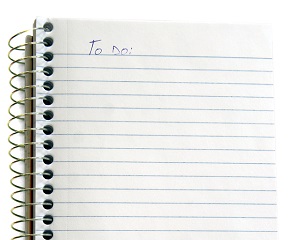I have been given two pieces of rock solid theatrical advice in the past 15 years and both I’ve used when directing shows. The first was from a now-acclaimed performer and creative who said the key to any show was to “get in quick, say what you have to say concisely and get out quick”. The second was from a brilliant and respected Artistic Director having a flippant moment with the brilliant “audiences will forgive a multitude of sins when you have a nice set”. The first I think applies to much in life and the second when put into the context of me being about to direct a show I’d written, rather galling. Both however were effective and have driven my logic around theatre, firstly that it’s about not wasting time and secondly it’s recognising that theatre is more than the words.
As many people now know I’m leaving Unity Theatre where I have spent the last 6 years as Marketing Manager. Inevitably as I wind down this part of my career to move onto a new and exciting future I start to think about the changes I’ve know, how they’ve effected me and what I wish I’d known 6 years ago when I started. With that in mind I thought I’d write down 6 things, not top tips (I’m not quite that arrogant) that I wish I’d been told at the start. If they’re useful please tweet me or comment at the bottom of the page.
 #1 | Rome wasn’t built in a day
#1 | Rome wasn’t built in a day
This took me a long time to realise and it only really sank in when Paul Clay, a brilliant arts manager, said it to me. When I started I believed that I could turn everything around in a year, that everything that needed updating, systems replacing and ideas formulating, could be done in 12 short months. It doesn’t work like that. Good change, I think, is built brick by brick and not imported wholesale – especially when your organisation is not overburdened with cash. Unity’s website development took 3 years to reach where it is today – not perfect by a long stretch, but a mile away from where it started. Having a clear idea of the endgame is key, but it has to be tempered with reality. I had a running phrase with one of my Marketing Officers Paul (who is an amazing musician) that “This time next year it’ll all be perfect”. Invariably it wasn’t. We’d reach a year later and yes, by the standards of 12 months ago things had improved, our expectations had risen, meaning that we were looking for the next step rather than taking in the step we’d already taken.
 #2 | There’s rarely a definitive right answer with creative
#2 | There’s rarely a definitive right answer with creative
I once had an argument where another arts marketeer described something I wrote as “awful”. I, internally, described them in slightly less pleasant terms and got wound up by it. There is no definitive rights or wrongs with creative (e.g. images, copy etc…). There are factor that effect its success; whether it speaks to your audience (which is different venue to venue), whether it fits your brand identity etc… but ultimately the mark of success is whether the show sold. I would also be wary of directors, actors and others who tell you that they’re the most qualified to write or create images. As a marketeer we are the ears and eyes of the public – we have to filter through the arts bullshit, through pretention, and find the gems, those bits that will relate to as wide an audience as possible and not just the people who work constantly in the arts, on shows or with other creatives. When you’re being concise and making a strong sell (or invitation) your role is to sell tickets and the brand. It’s okay to say that, well, actually noone has ever bought tickets because of the lighting designer or the DSM apart from family members (sometimes that can also extend to the writer and director) – people want to know what it’s about first, what it says second and who says it third (unless you’ve a star). Bare in mind that even as I write this I can remember exceptions to the rule – so also remain flexible.
As a final aside to this I am also of the opinion that “experience” can also be, on occasion renamed as “baggage”. Also just because you work in marketing or admin makes you no less or more a creative person than anyone who defines themselves as creative – it’s merely that they happen to be being creative differently – if they think they’re better than everyone because of it then be wary (or shoot to kill).
 #3 | Never be content with the status quo and fail regularly
#3 | Never be content with the status quo and fail regularly
The point where something needs to be looked at is the point when someone says it doesn’t need to be (and also when they say it does too). There will be a moment when you’ve redone the website, sales are going well, the e-bulletin is hitting, social media is bobbing along and you’ve upgraded everything. Don’t stop. Don’t f**king stop. Start re-examining, don’t be satisfied with where you’re at, look to what’s next. Sometimes you have to experiment to try new things – we discover improvements by failing. If you’re trying new things and failing regularly, so long as you’re learning as you go and implementing those failures it’s no bad thing. Our aim is for long-term success not short-termism. A to-do list can be good for this (but also occasionally soul destroying).
 #4 | Management and leadership are different and are not limited to managers and leaders
#4 | Management and leadership are different and are not limited to managers and leaders
This is a general thing. Management is about making systems work and managing them – leadership is about having vision, pushing in a direction and taking people with you. This can happen as a CEO or as an usher and anywhere in between. They’re different skill sets and they’re not always in Ben Hur type situations, but recognising these moment and supporting them and when other people are doing them can be really rewarding. Oh an shut up more. Let people talk. I don’t do that enough. Listen then speak. But obviously not everyone at the same time.
 #5 | Sometimes everyone doesn’t need to give their opinion
#5 | Sometimes everyone doesn’t need to give their opinion
Those meetings where we all gather round to chat. It feels lovely and democratic, every opinion is heard, angles looked at. They are useful for an hour maximum – once a year – everyone can have 5 to 10 minutes – but invariably people leave disappointed if you don’t follow the path they suggest. There are things that need group chats and things that don’t – it takes a while to distinguish between the two and sometimes you’ll get it wrong – but I would encourage action in most situations rather than endless debate. Try it, get it wrong, learn from it. It’s faster and while you may occasionally look like a dick so long as you have humility occasionally it’ll be fine. Also, for some things people will never know. Changing how you write a mailing doesn’t need debate, just do it. Worse case scenario is that someone will get pissy with you. They’ll get over it.
 #6 | Have faith
#6 | Have faith
Sometimes we forget we were employed because people believe in us, our skills, our opinions and our ability to make the right decision. I’ve had points where I thought “what the shit am I doing” and “am I making a terrible mistake”. Those doubts are natural. They make you redouble your checks and work harder to make things effective. There will be a point where you’re on the precipice (for me it was a new brochure design and rebranding), you’ve done the work. Jump.
Oh and have a marketing friend or friends. Ideally outside your organisation. Chew the fat with them. I go for cake with the brilliant Sarah Ogle and it’s amazing how just sharing an issue, frustration or an idea can lift a dark cloud or inspire a new thought.